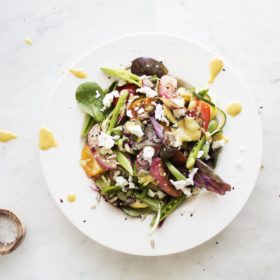Our streets have been hijacked. Our towns have been overtaken. In the places where mom and pop shops used to proliferate, chain stores and franchised food outlets now reign supreme. Prices are low and product turnover is high.
*This is an archived article. Since 22 October 2017, LFB is only focusing on Berlin-related topics. Please check out our new platform, YEOJA Magazine, for material like this.
You can buy the same H&M sweater in 62 different countries, and your Domino’s pizza will probably taste the same regardless of whether you nom it in San Diego or Singapore. Large global brands trade on the premise of making things easy for the consumer – you know what you’re getting, and for how much, no matter where you are. Sounds convenient, but what are we losing as a result?
Let’s face it – it’s rare to feel warm and fuzzy after shopping in Primark, or to truly enjoy being just another faceless coffee drinker with a misspelled name in Starbucks. Behind the glossy displays and too-good-to-be-true deals of our favourite chain outlets, something is lacking – a sense of personality, of passion, of humanity.
Local businesses provide more than just an alternative to the mainstream. They turn a city from soulless clone town into a place worth living. But as multinational chain stores tighten their grip on city centres, perhaps it’s time to look at how many benefits local, independently owned businesses bring to our neighbourhoods, and our own lives. Subconsciously, many of us know that it’s time to start fighting back. But do we know why?
“Locally owned businesses build local supply chains, invest in their employees, and make decisions with the well-being of the local community in mind, in ways that distant chains don’t,” says Olivia LaVecchia from the Institute for Local Self-Reliance, a US-based organisation that supports environmentally sound and equitable community development across the country. “When we shop at locally owned businesses, we invest in multi-faceted relationships, local decision-making, good jobs, entrepreneurship, and the distinct character of the places where we live.”
But it isn’t just our towns that stand to benefit from a renewed diversification of businesses. “Beyond the local level, economists have also found that as the economy has become dominated by fewer and larger companies, there’s been an increase in economic inequality and a sharp decline in the formation of the new businesses that fuel economic growth and that strengthen the middle class,” says Olivia. Put simply, supporting local businesses has the potential to create long-term financial and lifestyle advantages for us all.
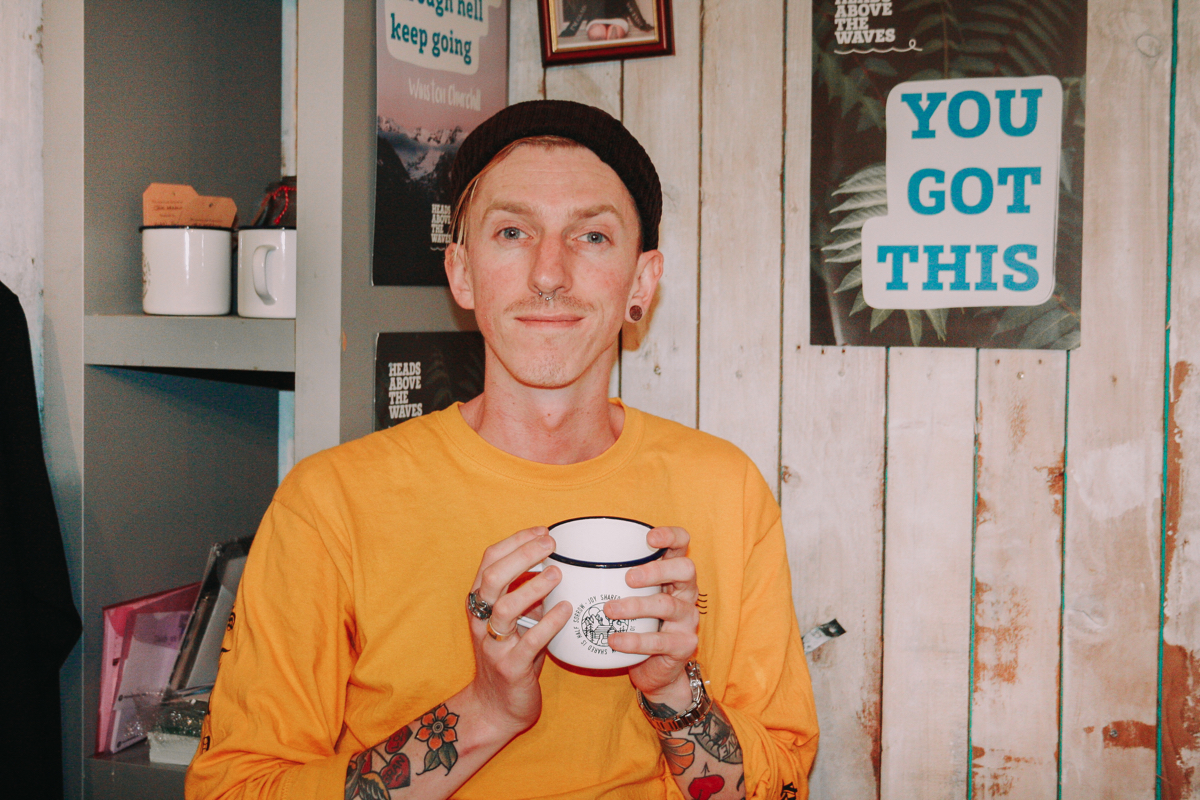
“Small businesses are the backbone of every free society,” says Mike Friedrich, a journalist and owner of Cafe Taubenschlag in the Schöneberg district of Berlin. He opened the cafe with his business partner back in 2012 as a way to add a bit of security to his freelance finances, and it’s been packed with local residents ever since – which to outsiders might seem like a miracle, considering the vast number of independently owned cafes and restaurants that pepper Berlin’s streets.
“Berlin is a city with a strong ‘Kiez-Struktur’ – which basically means that it consists of many villages next to each other,” says Mike. “People develop strong ties to the neighborhood they live in, and support local businesses rather than going to franchise coffee places or restaurants.”
In Germany, shopping isn’t a national sport in the same way it is in the US and UK. People prefer to dip in and out of small, locally-owned shops as they walk leisurely down the street rather than setting out for an all-day binge-buying marathon. Independent stores and brands in Berlin are able to set up and put down roots thanks to that ethos of ‘keeping it in the Kiez’ and cheap rental costs, creating a city full of fresh, exciting options and ideas.
“Every Kiez is unique – you can constantly discover new places in different neighbourhoods with different products, tastes, and ambiances,” says Mike. “And the people of Berlin really appreciate this – which is why every McDonalds or Starbucks in Schöneberg has closed within a few months of opening.”
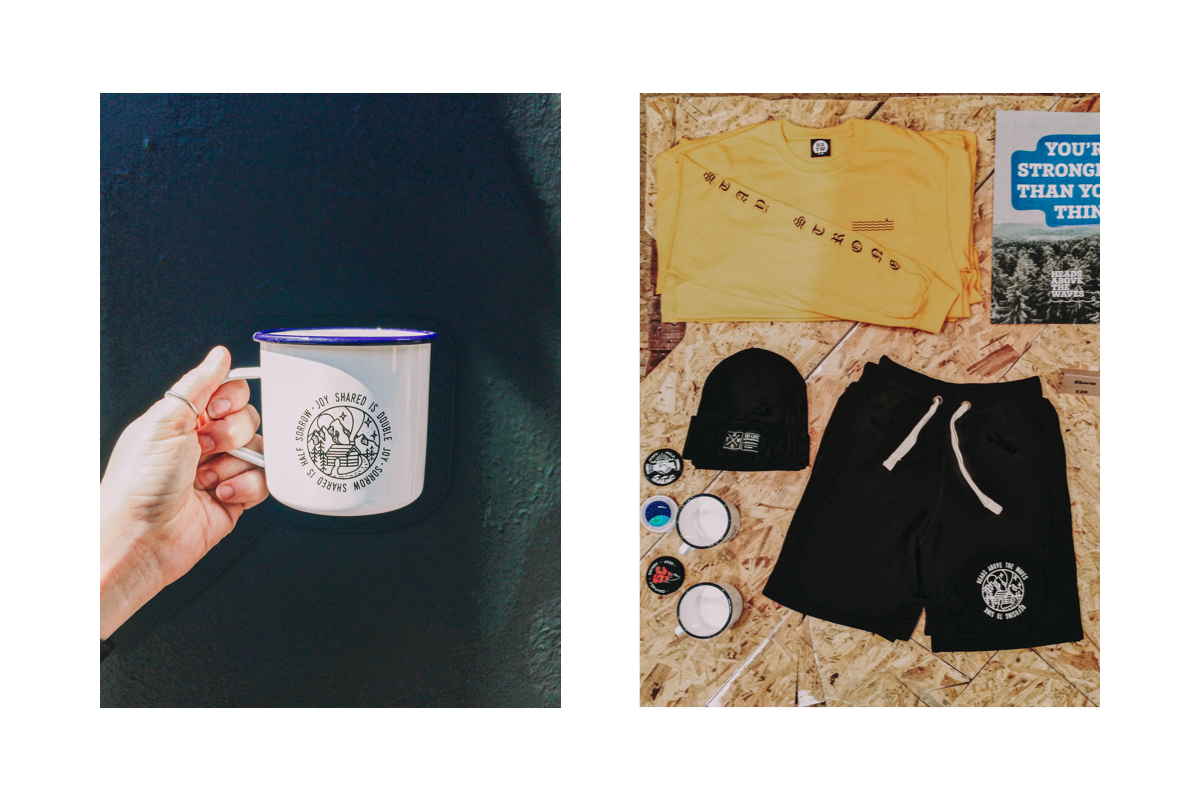
The streets of cities in the U.K and U.S aren’t quite as diverse as the Kiezes of Berlin. However, there does seem to be a renewed emphasis on shopping local and establishing small businesses, and enterprising Gen X-ers and newly-minted millennials are leading the charge. Away from the malls and strips, small shops, patches of land and old warehouses are being reclaimed by locals, and communities are rallying to support them.
Emma Hague is one of those people. After returning to the UK from five years in Peru working in community development and rural enterprise, she established the Bristol Textile Quarter in 2014 as a way of providing designers and textile workers with a clean and affordable place to create. Since their small beginnings, the Bristol Textile Quarter has thrived and now provides space for dozens of creatives to work and collaborate. The boom in fast fashion has left us disconnected and unaware of the origins of our clothes, most of which are made in factories thousands of miles away. Emma is on a mission to change that.
“Small enterprises keep us connected,” she says. “With so much business being out-sourced internationally, especially in production industries like textiles and fashion, we are losing connectivity with the processes and craftsmanship that go into making things, and the people who make them.”
Emma also believes that being a small business is actually a major benefit when it comes to giving the customers what they want – especially those who are local.
“The benefit to being a small independent is that we can be nimble and flexible,” says Emma. “Being part of the community means we can listen to what people are saying and wanting and we can respond. Bristol has an extremely strong community culture – and it isn’t going anywhere!”
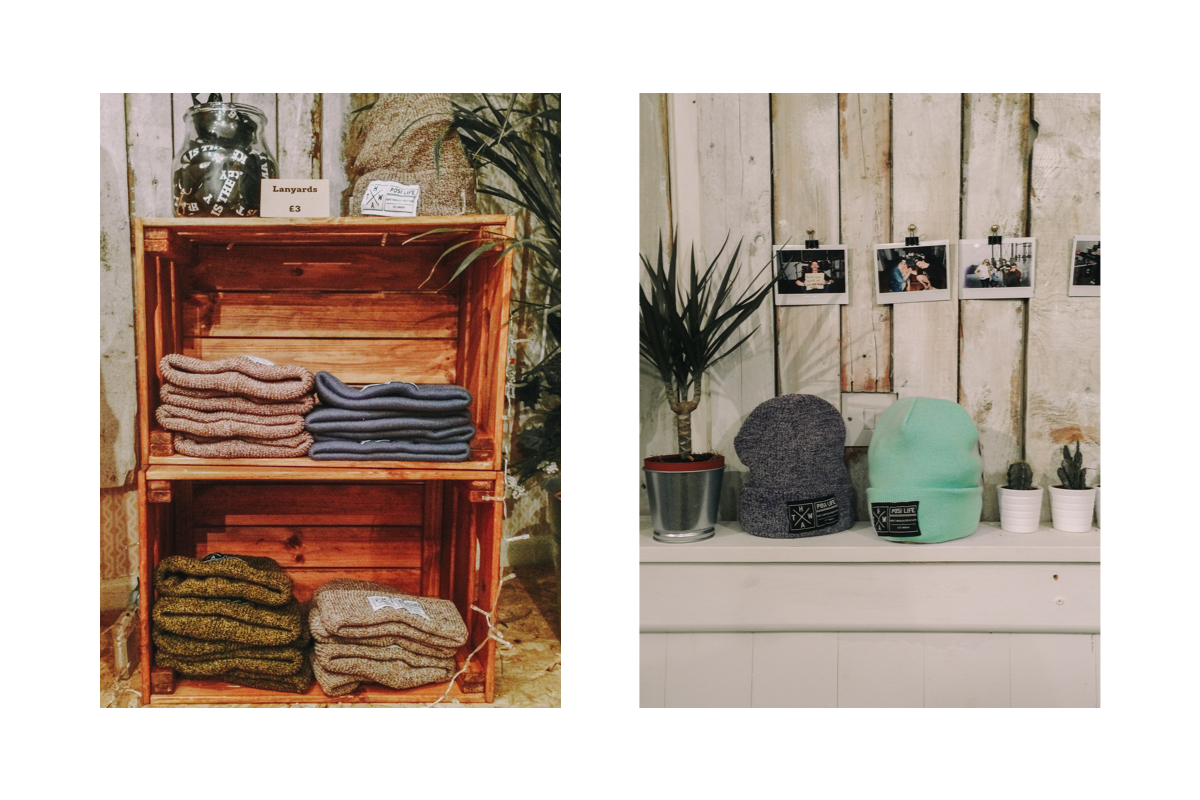 Small businesses bring life and jobs to the communities that they are a part of – that much can hardly be disputed. But what about those entrepreneurs who include making a tangible difference to people’s lives as part of their mission statement?
Small businesses bring life and jobs to the communities that they are a part of – that much can hardly be disputed. But what about those entrepreneurs who include making a tangible difference to people’s lives as part of their mission statement?
Si Martin is the twenty-something drummer of the up-and-coming pop punk band Junior. He’s also the brains and driving force behind Heads Above The Waves, a Cardiff-based social enterprise that raises awareness of mental health issues and self harm. Si and his small team of loyal friends and volunteers teach people how to deal with mental health problems, offer coping strategies for those in crisis and present workshops to schoolchildren. But Heads Above The Waves do more than just educate – they also have a shop in the Cardiff Emporium that sells a range of clothing and accessories that promote a positive mental attitude.
“We’ve always said that we want to provide the kind of support and help that we would have responded to when we were younger and struggling,” says Si. “We want to be a support level on young people’s level. I’ve had people I don’t know come up to me and say that Heads Above The Waves have saved their life.”
Si and his co-director, Hannah, have dedicated the past four years to HATW. Together, they have built the brand up from an online presence and selection of three t-shirt designs to a veritable Cardiff institution. They are very intertwined with Cardiff’s thriving music scene – “a lot of people in the alternative music scene know about the power of music to help, and know that you can be accepted and welcomed no matter what,” says Si – and regularly set up stalls and safe spaces at venues for gig-goers who might want to chat, confide, or just chill. Fellow friends in bands regularly contribute designs for new merch and model the latest gear. HATW made it their mission to help their local community, and the community stepped up and helped them right back.
“Wherever you are, you carve out your own little niche and people end up getting drawn to it because of mutual interests,” says Si. “And having a regular customer is more valuable to small businesses than it is to big chains. It’s nice to have time to chat to them and get to know them. Sometimes people don’t even want to buy anything – they just want to come and sit with us and hang out and chat, and that’s awesome. That’s worth so much more than profit.”
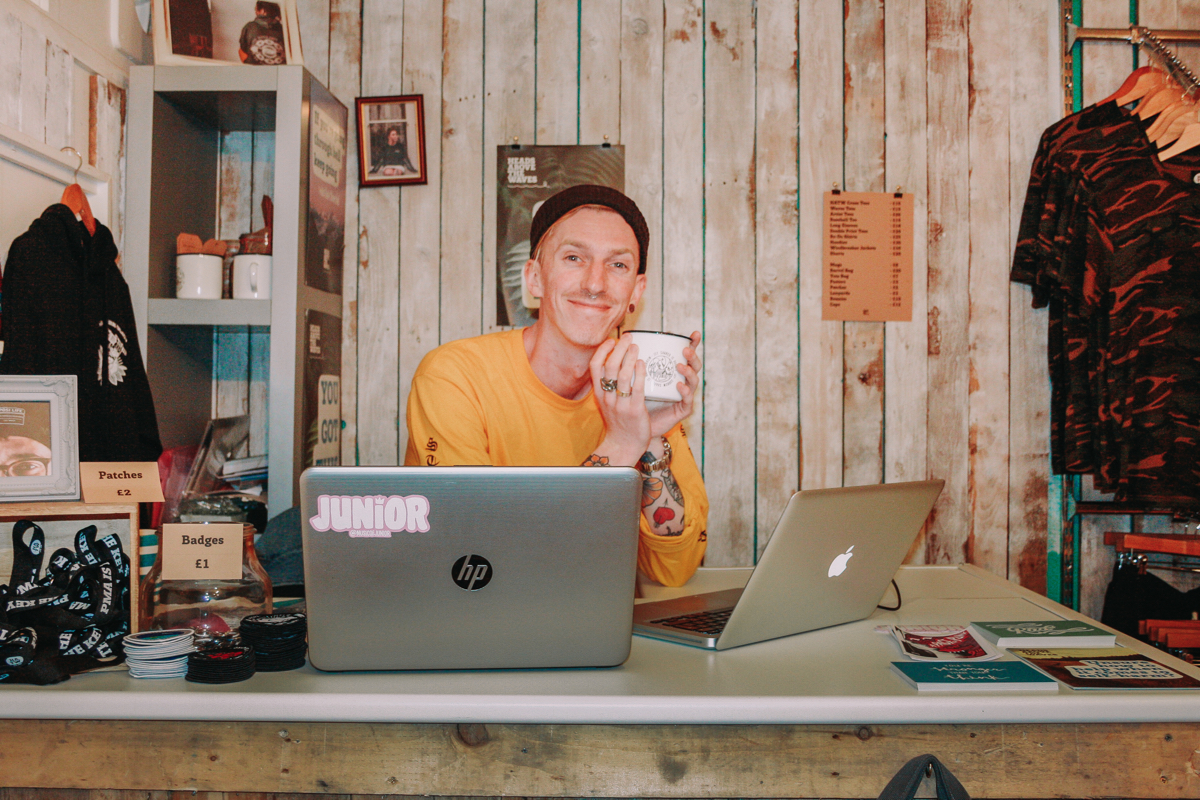
Local businesses are far more than just another place to buy a cool t-shirt or an artisan coffee. They make up the fabric of our cities, feed into local economies, create opportunities, and even help us to improve the quality of our lives. We stand to lose a hell of a lot if they disappear – but disappearing they are. As the marketplace gets even more competitive and rental prices for shop units spiral, small businesses are finding it hard to stay afloat. Even in Berlin, times are getting tough for the thousands of independents across the city.
“It seems that in politics support for small and middle sized business is very low at the moment,” says Mike. “With so much of the business income going to the state – especially compared to huge corporations – you have to be highly profitable to be able to survive. Therefore I actually see – if nothing changes – a sort of “small business dying” in the next years in Berlin, depending on how hard new rules and laws are going to be implemented. And in the rest of Germany this has already started. More and more business gross is made, but by fewer and fewer companies.”
However, it’s not all doom and gloom. Chain stores might be taking over city centres, but away from the mega malls independent traders are continuing to thrive. Social media has allowed small businesses across the world to market their products to millions, allowing more companies to sustain themselves by reaching out to larger audiences. And, crucially, people are becoming more aware of what they buy, and where they buy it from.
We as consumers are responsible for making this change. We are responsible for supporting the kinds of businesses we want to see, with our wallets, our recommendations and our time. Let’s choose wisely when we purchase, and take back our towns.
_
Photography: Zoe Sutton & Betti Hunter taken at Heads Above The Waves, Post-production: Rae Tashman
![]()





